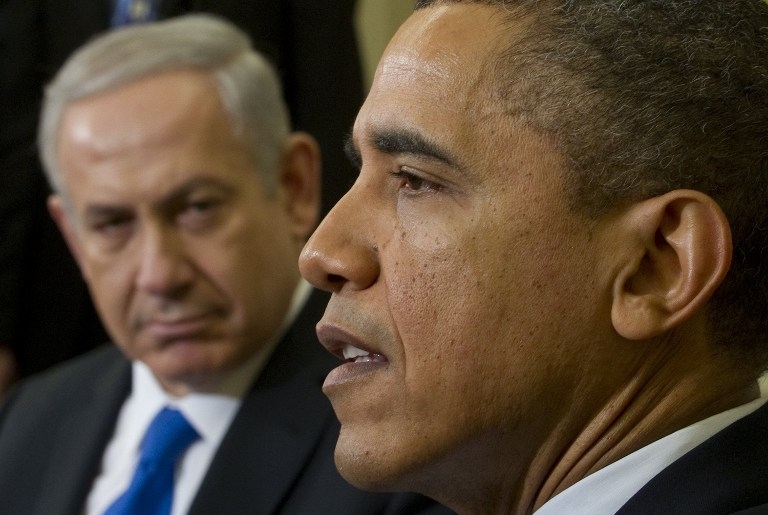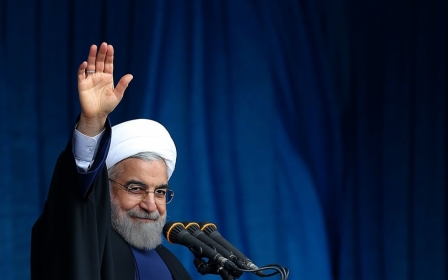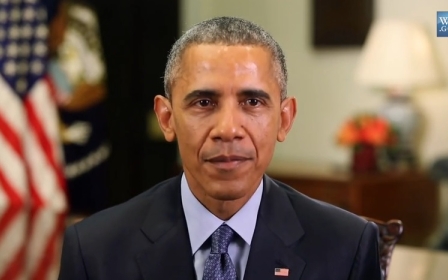Israel spied on Iran nuclear talks: US officials

The Israelis spied on international talks with Iran aimed at securing an overreaching deal on its nuclear programme, media reports claimed on Tuesday.
According to unnamed US officials quoted in the Washington Post, Israel began eavesdropping and acquiring information about confidential US briefings, through informants and diplomatic contacts in Europe as early as last year.
While the White House soon learnt of the infiltration, it was not necessarily angered by the moves until it emerged that the Israelis had used this information to lobby US lawmakers in a bid to discredit the negotiations and build up opposition to the talks that have been a cornerstone of US President Barack Obama’s foreign policy.
“It is one thing for the US and Israel to spy on each other. It is another thing for Israel to steal US secrets and play them back to US legislators to undermine US diplomacy,” a senior US official briefed on the matter told the Washington Post.
Israel has since denied the allegations.
"These allegations are utterly false," a senior official in the Israeli Prime Minister's office told CNN. "The state of Israel does not conduct espionage against the United States or Israel's other allies."
It appears that the White House first discovered the Israeli operation when US intelligence agencies spying on Israel intercepted communications among Israeli officials discussing details that should only have been privy to those attending the nuclear talks.
The P5 + 1 made up of the permanent members of the Security Council plus Germany have been heading up the talks with Tehran since 2006 although these seem to have gathering pace since 2014 when a framework for future negotiations was hammered out.
The talks have continued ever since, although there have been mixed signals about progress.
With a 31 March deadline looming and the final deadline scheduled for this summer, US Secretary of State John Kerry has stressed that “substantial progress” has been made.
Others, however, have been far less optimistic.
Speaking at an event on nuclear proliferation, Yukiya Amano, the head of the International Atomic Energy Agency said that progress had been limited.
“It is true that we have had some engagement from Iran on issues with possible military dimension. But in the past several months, progress is very limited," Amano said.
His remarks came just days before Kerry is due to return to Switzerland for talks with his Iranian counterpart Mohammad Javad Zarif.
Congressional opposition to the deal has been high, with Republicans now controlling both the House of Representatives and the Senate.
However, tensions have escalated in recent months with US House Speaker John Boehner controversially inviting Israeli PM Benjamin Netanyahu to address Congress on the Iran nuclear talks. The White House criticised the invitation, saying that it broke convention, with 58 Democratic lawmakers refusing to attend the 3 March address.
Following the speech, 47 Republicans went even further by circumventing Obama and sending an open-letter to the Iranian authorities that was slammed by the White House for circumventing the constitution and trying to trigger a “rush to war”.
Since then, diplomatic relations between the White House and Netanyahu seem to have only deteriorated further.
“People feel personally sold out,” a senior administration official told the Washington Post. “That’s where the Israelis really better be careful because a lot of these people will not only be around for this administration but possibly the next one as well.”
Some Israeli officials now regret going on the diplomatic offensive, believing they could have overreacted, the paper said.
New MEE newsletter: Jerusalem Dispatch
Sign up to get the latest insights and analysis on Israel-Palestine, alongside Turkey Unpacked and other MEE newsletters
Middle East Eye delivers independent and unrivalled coverage and analysis of the Middle East, North Africa and beyond. To learn more about republishing this content and the associated fees, please fill out this form. More about MEE can be found here.




